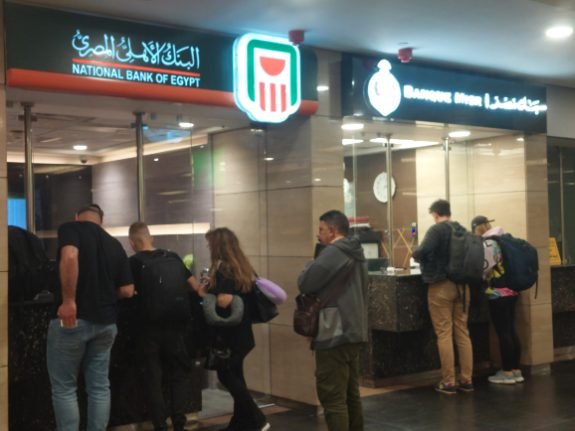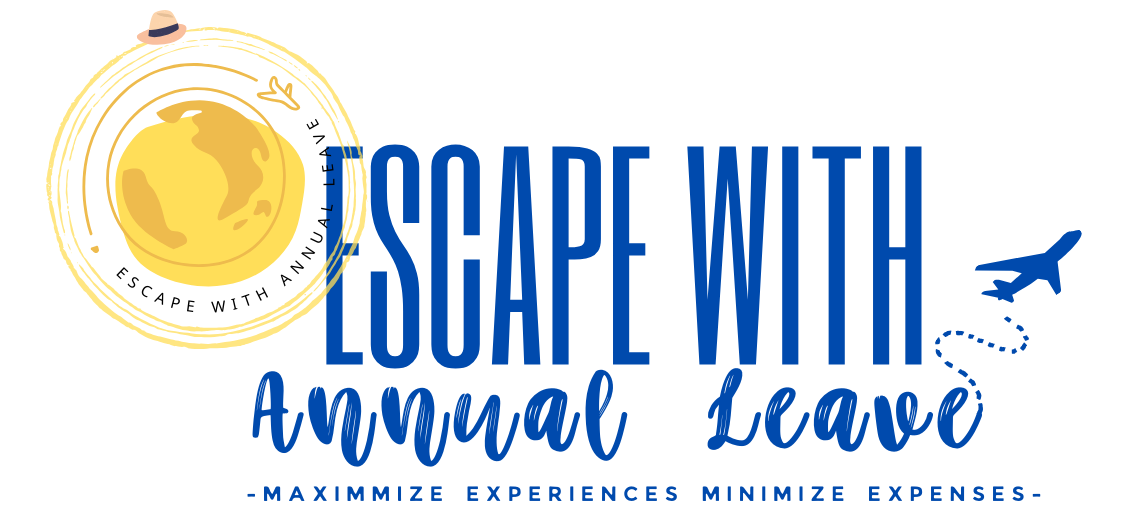Don’t Miss Out ! 5 Common Egypt Travel Currency Questions
EscapeWithAnnualLeave contains affiliate links. We may receive compensation at no extra cost to you. See our Disclosure Policy for more information.
Got a question for egypt travel currency? Then you must read our answers to the 5 common Egypt travel currency questions!
More than 13 million tourists travel to Egypt per year. If you are a world traveler like me, going to the Pyramid is one of your bucket lists. Yet, most of the online information for Egypt would be outdated but not accurate. Especially, when it comes to money in Egypt.
Why?
Despite over a hundred years of history, the Egyptian Pound the legal currency in Egypt has been very volatile. With the fluctuation, EGP has changed from 1 EGP to 2.3 USD to 1EGP to 0.021 USD (for 1 USD you can have over 47 EGP), since 1962.
So if you are looking for the right price for your Egypt travel, you will see various prices on one single item.
Confused right? No worries, I will make it clear for you by answering the below 5 common Egypt travel currency questions.

Common Egypt Travel Currency Question 1 – Shall I use local currency?
The Egyptian pound is the only legal currency in Egypt. So the answer for the locals is yes. However, for tourists like us, the answer is a partial yes.
Let’s elaborate with a brief history of EGP.
A brief history introduction of EGP
EGP has over 190 years of history starting in 1834. Before World War 1, it adopted a gold standard and subsequently changed to a sterling peg and then the USD peg in 1962. Over the course of 50 + years since then, it has gone from tightly central bank-controlled to managed float to freely float and vice versa, depending on the political situation. With that, it leads to the existence of the black market. Sometimes the USD to EGP exchange rate difference (compared to the official rate) could be over 100%. For example, the black market rate was 74:1 versus the official rate of 30.9:1 in February 2024 before the regime once again went free float in March 2024.
With that both rates start to converge to around 47:1. You can check out the news more here.

Then shall I exchange EGP for traveling?
Despite the volatility, you will at least need some EGP for small-value items. That would include:
| Small Value Items that EGP required | |
| Going to toilet | Yes, this is the most important item. Almost all of the attractions’ toilets require entrance fees ranging from 10 EGP to 20 EGP. |
| Small tipping | You will need it when you feel like tipping a small amount or “have to”. |
| Groceries | A bottle of water could range from 5 to 20 EGP. You are in a far better position by paying EGP than other currencies |
| Local snacks | Want to have freshly made Egyptian bread? They usually cost around 20 EGP for 4 slices. |
Other than the small value items above, you may also need EGP in cash for settlement of local restaurant bills in non-tourist areas. So you should always have some EGP in cash handy. Ideally, some small bills like 10 EGP or 20 EGP.
Additionally, the 1 EGP coin with the mask of King Tut on it is a good souvenir as well.

Common Egypt Travel Currency Question 2 – Where to exchange for EGP
Okay now, given we need some EGP cash. The next question is where shall we get in?
First, unlike other countries, there are no official money exchange shops in Cairo or other cities. Thus, the official EGP exchange places would be mainly airports, banks, or ATMs. All of them would be using the official (the same as Google) rate for the EGP exchange. If you are looking for currency exchange from Egypt (EGP) to USD (or other main currencies), there wouldn’t be much difference.
So the most convenient way for you to get EGP is to do that at the airport, as the bank may be closed during the holiday and ATMs may have extra charges. Depending on your itinerary, you can exchange for an amount equivalent to ~ 10% of your total budget. Or you can exchange 100 USD for EGP for each week in Egypt.
No worries, I will elaborate a more in later session.

How about “The Black Market’?
Yes, I told you about the black market rate in the first session, right? So is it possible for us to exchange according to the local/black market rate instead of the official rate?
The answer is not likely. First, black market foreign exchange is liable for an imprisonment of no less than 3 years and a fine of no less than 1 million EGP locally. Locally, you would not see any shops offering exchange services on the table.
Although the black market does exist, we are not likely to get them as an outsider. Let alone it is not worth risking yourself for the punishment. We are world-travelers, we go for the best-valued deal. But we are not insane risk-takers.
Common Egypt Travel Currency Question 3 – Can I use a card in Egypt?
Okay, so we know cash is needed for traveling in Egypt. How about the card? Is it widely accepted or should I even bring one?
Look, this is very important.
For traveling to Egypt, a credit card IS A MUST!
For all the attractions in Egypt including the pyramids, temples, and museums, you can only pay with a credit card. In that, you must have a valid credit card with you, or else you could only rely on local tours which could be overpriced.
Other than that, most of the restaurants in Egypt and even some wholesale souvenir shops accept credit cards. For example, Jordi the most economical souvenir shop I found at Khan Al-Khalili (Cairo Bazaar) accepts cards regardless of the payment amount.

Common Egypt Travel Currency Question 4 – What foreign currencies can be used in Egypt?
USD and EUR are the most commonly used foreign currencies in Egypt. You will get used to hearing the local vendors shouting “1 USD, 1 USD, 1 USD” or “1 EUR, 1 EUR, 1 EUR” near any tourist attractions.
Not only for souvenirs. If you are on the Nile Cruise tour, you can pay your entrance fee + tipping in USD or EUR. In that, if you are living in the US or Europe, bringing your home currency would offer a good deal of convenience.
Remember to also prepare some small notes/coins like 1 USD, 5 USD, 1 EUR, 2 EUR, or 5 EUR. I know some blogs suggest not paying the locals with coins. However, per my understanding, they actually welcome EUR coins rather than local currency.
In fact, lots of bills can be settled in USD / EUR even at the most local restaurants given the existence of the black market. Of course, using EGP may give you a better position in the scenario of small-value item purchases. However, using USD/EUR could also be convenient sometimes.
In some rare situations, you can even tip in other foreign currencies like HKD, JPY, and KRW, if you are out of EGP/EUR/USD. Subsequently, the locals would find a rate to exchange your home currency with other tourists.

Common Egypt Travel Currency Question 5 – What is the best money strategy for traveling to Egypt?
For now, you should know that the money strategy in Egypt is highly flexible. For example, if you prefer convenience, you could go with only USD / EUR plus a credit card. With that, you don’t even need to exchange any local currency. In return, you may over-pay for some of the small value items. Taking reference to our suggested Egypt itinerary, below is the best money strategy for you.
| Egypt Travel Currency Strategy | Items | % of Budget |
| EGP Cash (Recommend to exchange at the airport) | Small-valued items like toilets, water, tipping | 10 – 15% |
| Credit Card (Must bring) | Entrance fee for pyramids, museum, temples, and other attractions; Uber; Pre-booked local tour via online travel agency | 40 – 60% |
| EGP / USD / EUR in Cash | Official tipping for cruise; Entrance fee for attractions included in Nile Cruise Tour; Others | 20 – 30% |

The actual breakdown may depend on your finalized itinerary, duration of travel, and budget. For the best flexibility, I would suggest you have all these three types at hand.
I hope my FAQ can assist your Egypt travel planning. Please leave me a comment about your wonderful journey or any questions.

